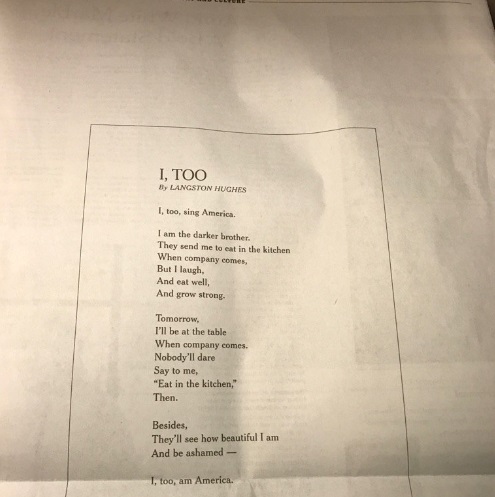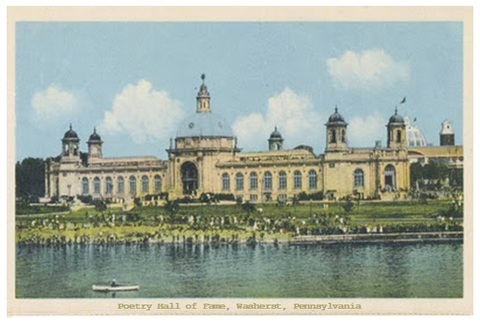| Pictured at the left: The Times' full-page copy of Langston Hughes' poem "I, Too." However, this week’s full-page tribute to Hughes’ poem was not the first time the Times has devoted a full-page to a poem. In the late 1800s, the Times ran a full-page with Emmett Lee Dickinson’s poem “Shame is a flea.” The poem ran the day the Poetry Hall of Fame opened in historic Washerst, PA, the birthplace of Emmett Lee Dickinson (Emily Dickinson’s third cousin, twice removed – at her request). Coincidentally, the print edition of this poem followed unrest in many cities around the country due to the treatment of poets. |
At this time in our history, poets faced very poor working conditions, their hours were long, and their pay was low. Many poets were forced to work for 12 hours a day with others working even longer. They were not entitled to retirement or health benefits and most elderly poets were exposed to extreme poverty and dependency on other working family members. There was little poets could do about these conditions, and publishers continually reminded them that they could be easily replaced.
The Times published many articles about poets, and they emphasized how shameful their living and working conditions were, so when the Poetry Hall of Fame opened, they ran a full-page copy of Dickinson’s poem to remind readers of the shameful conditions poets faced.
Pictured below: The Poetry Hall of Fame in historic Washerst, PA -- birthplace of Emmett Lee Dickinson (Emily Dickinson's third cousin, twice removed -- at her request). For information on the Hall of Fame, click HERE.
Below on the left: Emmett Lee Dickinson's now-classic poem "Shame is a flea." His poem inspired his third cousin Emily to pen her poem "Fame is a bee" (below on the right).
| By Emmett Lee Dickinson: Shame is a flea. It has a host – It has a bite – Ah, too, it sucks blood. | By Emily Dickinson: Fame is a bee. It has a song – It has a sting – Ah, too, it has a wing. |


 RSS Feed
RSS Feed
